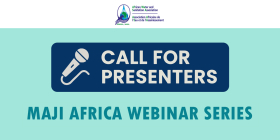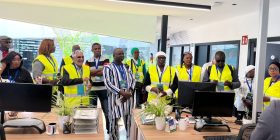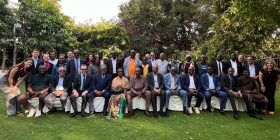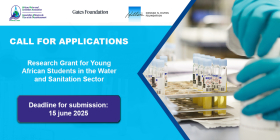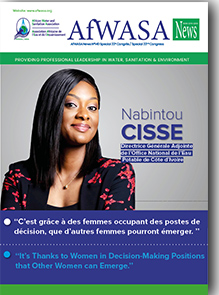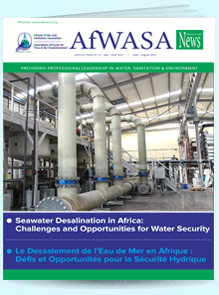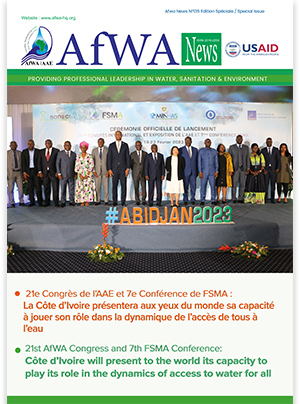Background
Component 1: Technical Guidance
Based on the FSM toolbox developed by BMGF, an African adapted toolkit will be created. The adapted toolkit for sanitation services will be disseminated through trainings and practical use during exchange visits, and published online. Two performance assessment questionnaires will be developed and used as a tool for a baseline and final evaluation of involved utilities/municipalities and small service providers. By comparing the baseline and final evaluations, AfWA will gather the success factors that led to these achievements and produce materials for dissemination online and in hard copy to reach even operators not involved in the project.
Component 2: Capacity Building
With funding from the USAID FABRI program, a sanitation status assessment including FSM and non- sewer sanitation systems in multiple African countries was carried out to identify five beneficiary...
Goal
The quality and coverage of sanitation services by most African operators are inadequate because of poor skills in management, operation and maintenance of sanitation systems. This situation is worsened by fast population growth and sprawling, uncontrolled urbanization. More than 65% of households in Sub-Saharan cities are not connected to a sewer system, and the resulting production of fecal sludge must be treated to deter significant health threats.
Program Description
Life of Program:
2016-2019
Total Funding:
USD 3,500,000
Geographic Focus:
Bamako, Mali
Kampala, Uganda
Lusaka, Zambia
Yamoussoukro, Côte d’Ivoire
Yaoundé, Cameroon
Program Objectives
Adapt and spread technical guidance to promote best practices in non-sewer sanitation and FSM Enable sanitation utilities/municipalities to secure funding for improving urban sanitation Support sanitation utilities/municipalities to develop strategic sanitation plans and regulatory framework that formalize private service providers in FSM and public toilet provision Improve governance and accountability of AfWA’s program management
More info
Adapt and spread technical guidance to promote best practices in non-sewer sanitation and FSM Enable sanitation utilities/municipalities to secure funding for improving urban sanitation Support sanitation utilities/municipalities to develop strategic sanitation plans and regulatory framework that formalize private service providers in FSM and public toilet provision Improve governance and accountability of AfWA’s program management
| No events |
Rasop News
USEFUL INFORMATION
Young Water and Sanitation Professionals Program
Fellowship for Young African Water and Sanitation Professionals
The list of fellows for the Academic Year 2021-2022 is available here
Stay connected
Subscribe to our regular newsletter and stay
up-to-date
PUBLISHING
AfWASA NEWS - 140 December 2024
‘‘Together, we explore solutions to ensure a safer, more sustainable future for our continent.’’
Dr. Ing. Silver Mugisha, AfWASA President
AfWA NEWS 137 August 2023
Access to drinking water and sanitation is a fundamental human right, recalled in 2010 by United Nations resolution 64/292.

 English
English  Français
Français 

